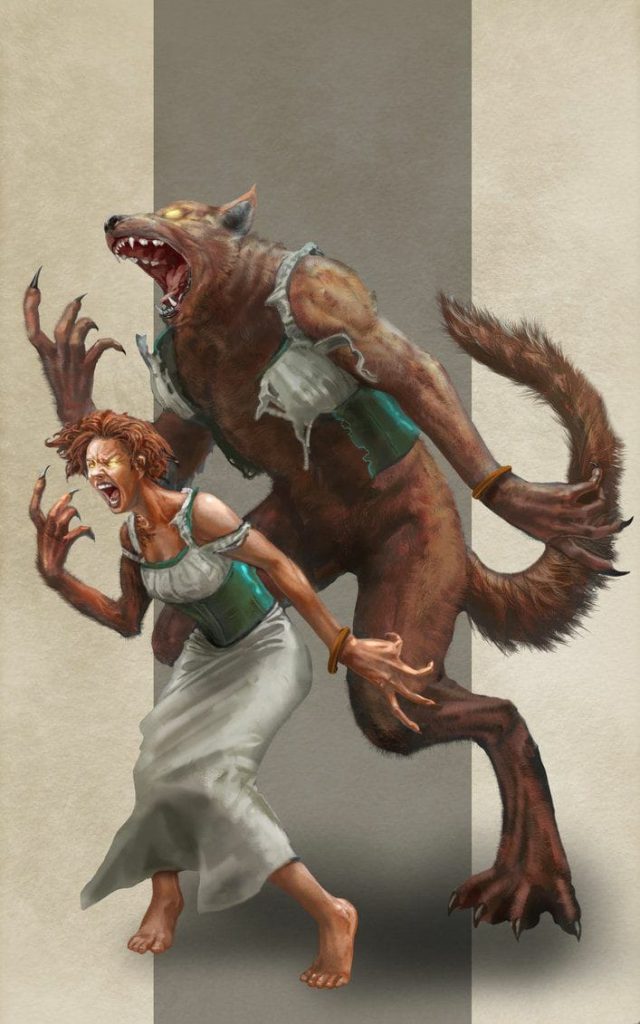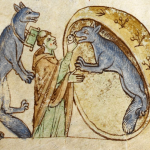The modern myth of the werewolf may be traced back in substantially the same form to ancient Greece, where it was believed that werewolves were hereditary, and originated from a curse of the gods on particular families or clans

The Greek werewolf actually transformed into a wolf, and was condemned to seek out human flesh while in its wolf state.
St. Patrick is said to have changed Vereticus, king of Wales, into a wolf, and S. Natalis, the abbot, to have pronounced anathema upon an illustrious family in Ireland; in consequence of which, every male and female take the form of wolves for seven years and live in the forests and career over the bogs, howling mournfully, and appeasing their hunger upon the sheep of the peasants.
The lycanthrope is then both the villain and the victim of his metamorphosis, for when he returns to human shape the remembrance of the foul murders he has performed while in the form of a wolf will continually haunt him.
A person who becomes a werewolf against his will (birth, curse, or bite) is not completely damned until he tastes of human blood.
Once he does, his soul is eternally damned and nothing may redeem him. Even without tasting of human blood, however, as long as the taint lays upon the immortal soul, it cannot enter Heaven, and will remain chained to the mortal plane upon death.








